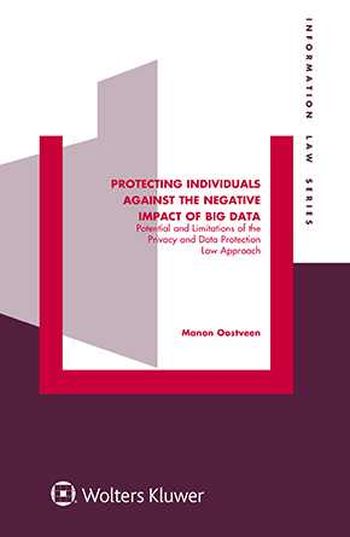We are now closed for the Christmas and New Year period, returning on Monday 5th January 2026. Orders placed during this time will be processed upon our return on 5th January.

Protecting Individuals Against the Negative Impact of Big Data aims to provide a thorough analysis of big data and the possible negative impact it may have on individual rights and freedoms, how and to what extent EU privacy and data protection law may mitigate this negative impact, and which alternative legal solutions should be considered to provide an adequate level of protection of individual rights and freedoms in the context of big data. In the contemporary information society, organisations increasingly rely on the collection and analysis of large-scale data (popularly called ‘big data’) to make decisions. These processes, which take place largely beyond the individual’s knowledge, produce a cascade of effects that go beyond privacy and data protection. This work acknowledges the importance of the rights to privacy and data protection. By conceptualising big data as a process that consists of the acquisition and analysis of (personal) data and the application of the outcomes thereof, it finds that the potential consequences may also be particularly severe for personal autonomy, freedom of expression and non-discrimination.
What’s in this book:
Among the issues raised in the analysis are such vital elements as the following:
How this will help you:
The mapping of the different stages of the application of big data facilitates the legal analysis of data-driven decision-making and may help scholars working in this domain. Because the amount of digital data keeps growing and the private lives of individuals are increasingly taking place online – and because of the opacity of the big data process, the fundamental values that are at stake, and the speed of technological developments compared to the pace of legal reform – this comprehensive assessment of flaws in the current framework and possible practical solutions will be warmly welcomed by practitioners, policymakers and government officials in all legal fields related to privacy and data protection.